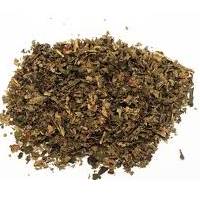BLACKBERRY LEAVES CUT ALBANIA

Prices
-
Prices do not include VAT.
Description
Blackberry (Rubus fruticosus): The Herb of Antioxidant Power and Health
Blackberry (Rubus fruticosus), also known as bramble, belongs to the Rosaceae family and is widely found across Europe, Asia, and North America. This herb is celebrated for its sweet, dark berries, but it is also valued for its therapeutic properties. The leaves, roots, and fruits of the plant have been used in traditional medicine for a range of health benefits.
Properties and Benefits of Blackberry
Antioxidant Power: Blackberries are rich in vitamins C and E, which have strong antioxidant properties, helping to combat free radicals that cause cell aging.
Anti-inflammatory: The herb is well-known for its ability to reduce inflammation in the body, making it useful for conditions like arthritis and muscle soreness.
Heart Protection: Consuming blackberries can help reduce bad cholesterol levels and improve cardiovascular health.
Antibacterial and Antiviral: Blackberry has been shown to have antimicrobial and antiviral properties, aiding in the prevention and treatment of infections.
Digestive Health: Consuming blackberry, especially the leaves, can improve digestion and relieve digestive issues such as diarrhea and inflammatory bowel conditions.
Uses of Blackberry
Leaf Tea: Tea made from the leaves of the blackberry plant is popular for its soothing properties, helping to relieve inflammation and digestive problems.
Supplements and Tinctures: Blackberry can be found in tincture or capsule form for treating infections, boosting the immune system, and improving digestive health.
Fruits and Juices: The fruits of the blackberry plant are rich in vitamins and fiber and can be eaten raw or juiced to promote gut health and enhance the immune system.
Topical Use: Blackberry roots and leaves are used topically to relieve inflammation and treat skin conditions, as well as for wound healing.
Selected Spices and Herbs
Merkouroglou, quality spices and herbs since 1926.
Subscribe to our newsletter!

About
Contact
-
This email address is being protected from spambots. You need JavaScript enabled to view it.


